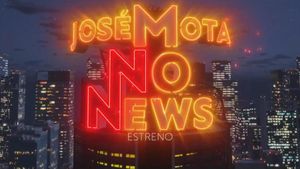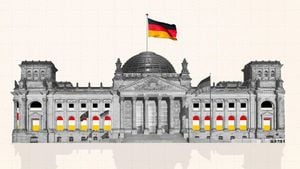On February 20, 2025, significant developments unfolded across various regions, including weather updates, municipal snow removal efforts in Westmount, and tensions surrounding Iranian military posturing. These updates reveal the diverse challenges and events facing communities and governments alike.
First on the agenda is Westmount's snow removal operation, which has made notable progress in recent days. According to city officials, over 45% of the affected area has been cleared of snow. Principal locations benefiting from this initiative include Avenues Roslyn, Grosvenor, Lansdowne, and parts of Rue Sainte-Catherine, among others. With winter storms retaining their icy grip, the city continues its operations, albeit with diminished resources due to mandatory rest periods for drivers. Currently, the plan is to deploy 20 snow trucks and two snowblowers, with full operations expected to resume by Saturday. Residents are being urged to consult the city's interactive snow removal map for real-time updates on operations.
The removal process has necessitated changes to waste collection schedules, as city officials have stressed the importance of cooperation from the community. Regulations around parking restrictions during snow operations have been highlighted, with vehicles obstructing snow removal facing towing. Residents are advised to stay aware of these updates and to relocate their cars if necessary to aid snow removal efforts, reinforcing local engagement during these challenging conditions.
Weather patterns are also heavily influencing events this week. A Thursday evening update highlights the continuous snowfall across regions, with details expected closer to local action. This situates Westmount's operations within a broader narrative of community resilience against harsher winter conditions.
Over on the global front, geopolitical tensions are rising as Iranian military leaders reportedly have resumed threats toward Israel. This escalation coincides with the recent interactions between the Islamic Revolutionary Guards Corps (IRGC) and Israeli forces. Commanders have begun issuing warnings about potential attacks, signaling the possibility of renewed conflict, particularly following previous engagements marked by significant strikes. Major General Hossein Salami and Brigadier General Amir Ali Hajji Zadeh have stated intentions to conduct what they are calling the 'third True Promise attack' against Israel. Such moves appear as attempts to deter any possible Israeli strikes and maintain domestic confidence amid external pressures.
Meanwhile, the backdrop of military maneuvers is compounded by the continuing discussions around the future of Syria. Dialogue sessions have emerged amid growing internal tensions, with significant political groups holding discussions on restructuring governance and military formations within the troubled nation. It has recently been reported, for example, of the Syrian interim government's attempts to facilitate rejoining of regions under the Syrian Defense Ministry, though these discussions have faced hurdles, including allegations of exclusion against Kurdish groups like the Syrian Democratic Forces (SDF). With the impending National Dialogue Conference set to address the formation of new governance structures, the perspectives of various factions—including Kurds challenging historical injustices—remain points of contention.
On the domestic front, local events also beckon attention. San Ramon, California, prepares for significant community events, including the release of their Spring 2025 & Summer Camps Recreation Guide. Registration opens for residents on February 24, promising array of activities for families. Notably, the State of the City event is scheduled for March 5, where Mayor Mark Armstrong will discuss city updates and future plans, reflecting the proactive governance approach the city aims to maintain.
Beyond recreational activities, the city reveals diverse initiatives addressing community needs. The forthcoming Dark Skies Alliance walk, scheduled for February 21, invites residents to explore the impacts of urban lighting, emphasizing community engagement with environmental issues.
Unfolding against all these local and international developments are key influences within Iraq’s political scene. Reports detail how Iranian-backed political factions are strategically consolidifying their power before the upcoming electoral law amendments, aimed at retaining control over future governance. With previous tensions boiling over potential protests by the influential Shiite cleric Muqtada al-Sadr, the dynamics within the parliament and the broader repercussions for Iraqi stability reflect the uncertainty looming as the political environment navigates toward the October 2025 elections.
Altogether, February 20, 2025, serves as both a snapshot of community resilience amid winter adversities and the undercurrents of significant geopolitical and local governmental transitions. The conflux of local, state, and international matters invites observers and residents alike to remain engaged as events continue to evolve, shaping both immediate conditions and long-term trajectories.



